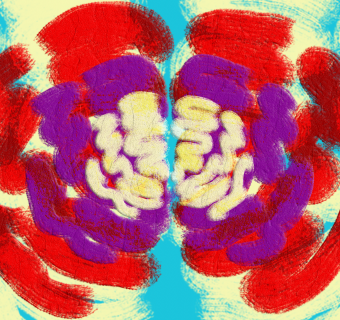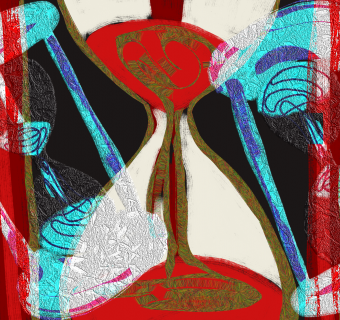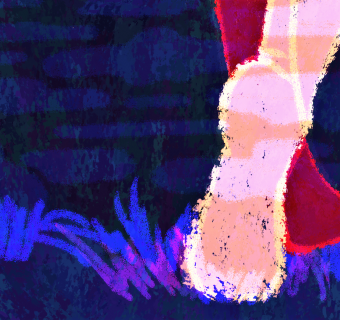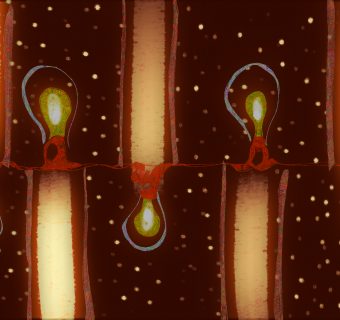 “I do not at all support or condone the abuse or mockery of those who have been brave enough to openly discuss mental health issues. Mockery causes deaths...”
“I do not at all support or condone the abuse or mockery of those who have been brave enough to openly discuss mental health issues. Mockery causes deaths...”~ Sinead O'Conner
Media controversy has stirred up in the battle of words between recording artists Miley Cyrus and Sinéad O’Connor. The argument stemmed from a Rolling Stone interview with Cyrus, in which she revealed that her recent music video “Wrecking Ball” was inspired by the Irish singer’s 1990 music video “Nothing Compares 2 U.”
Concerning this, O’Connor wrote a series of open letters to Cyrus on her blog, stating: “Women are to be valued for so much more than their sexuality. We aren’t merely objects of desire. I would be encouraging you to send healthier messages to your peers… that they and you are worth more than what is currently going on in your career.” Cyrus responded to O’Connor’s letter with a series of tweets that included screenshots of old Twitter posts by O’Connor, in which she was seeking recommendations from her followers for psychiatric help. Further, she called O’Connor’s actions “kind of crazy” on the "Today Show" in an interview with Matt Lauer. In response, O’Connor followed up, “I do not at all support or condone the abuse or mockery of those who have been brave enough to openly discuss mental health issues. Mockery causes deaths. It is an unacceptable form of bullying.” Though the clash between artists has created a lot of buzz, what deserves to be most highlighted is the faulty portrayal of mental health. Despite insinuations made by Cyrus, asking for help in regards to a mental illness does not make one “crazy.” In fact, the National Institute of Mental Health (NIMH) has stated that mental disorders are common in the United States, with one quarter of adults diagnosable for one or more disorders in a given year. They have issued statistics that there is a 12-month prevalence rate of 26.2 percent of the U.S. adult population with mental disorders, 22.3 percent classified as “severe.” Fortunately, the University of Virginia takes mental health very seriously, with significant efforts to promote mindfulness and healthy well being by offering a plethora of ways to get support. “Mental health issues impact everyone… not just the person who is trying to deal with it,” said Charlotte Chapman, Director of Counseling Services at the U.Va. Women’s Center. “For example, if your room mate is depressed or has an eating issue, it impacts you; same with a sorority or fraternity brother, a team mate, and of course, parents and faculty who are concerned..." A diverse range of clubs on Grounds promote mental health and support. "...Mental health in a college environment is something that can be looked at as a community issue which is why Active Minds and other groups like that are so important," Chapman said. "One of the services we offer in Counseling is to meet with a student who wants help in talking with their friend who they think has a problem.” The seriousness of Cyrus’s words lie in her outstanding influence as a role model for millions of people, most relevantly those in adolescence who have grown up watching her children’s show on Disney, "Hannah Montana," and thus may mimic her own values, whether unconsciously or not. According to NIMH, the lifetime prevalence rate of mental disorders in the 13 - 18-year-old demographic is 46.3 percent, 21.4 percent classified as “severe.” Thus Cyrus’s portrayal of the mentally ill with negative implications may create a humongous impact on how the younger generation perceives it as well. No matter one’s own personal opinions on either of these celebrities, one cannot deny that making jokes about the mentally ill is flawed, and words with negative connotations with the intent to hurt those suffering from them is unacceptable. The idea that those who have problems with mental health must be “crazy” is wildly incorrect and a misguided stigma that needs to be erased from society in order for us to progress. With so many people all over the world struggling with these issues daily, it is important that we understand that it is common and not something to be looked down upon. In fact, doing so may prevent someone from seeking the help they need, as others’ impressions of them holds lots of weight; it may have a tremendously large effect one’s actions and furthermore, how a person sees oneself.
- The Elson Student Health Center’s Counseling and Psychological Services (CAPS): offers free counseling, mental health screening, and group therapy workshops. Open to all students.
- HELP Line: anonymous, confidential phone service. Student-run, student-operated; offers ability to talk to someone your age. Serves all residents of Charlottesville, Albemarle County, and U.Va. community. To talk to someone, call (434) 295-TALK (8255).
- Active Minds: seeks to remove the negative stigma surrounding mental health issues and promotes a comfortable environment for those suffering.
- Hoos Open to Preventing Eating Disorders (HOPE): seeks to create a mind/body-positive community, dedicated to increasing awareness of eating disorders.
- Peer Health Educators (PHE): sponsors University-wide mental health and wellness events through promoting awareness and encouraging a supportive, healthy U.Va. community.
By Kiana Williams






